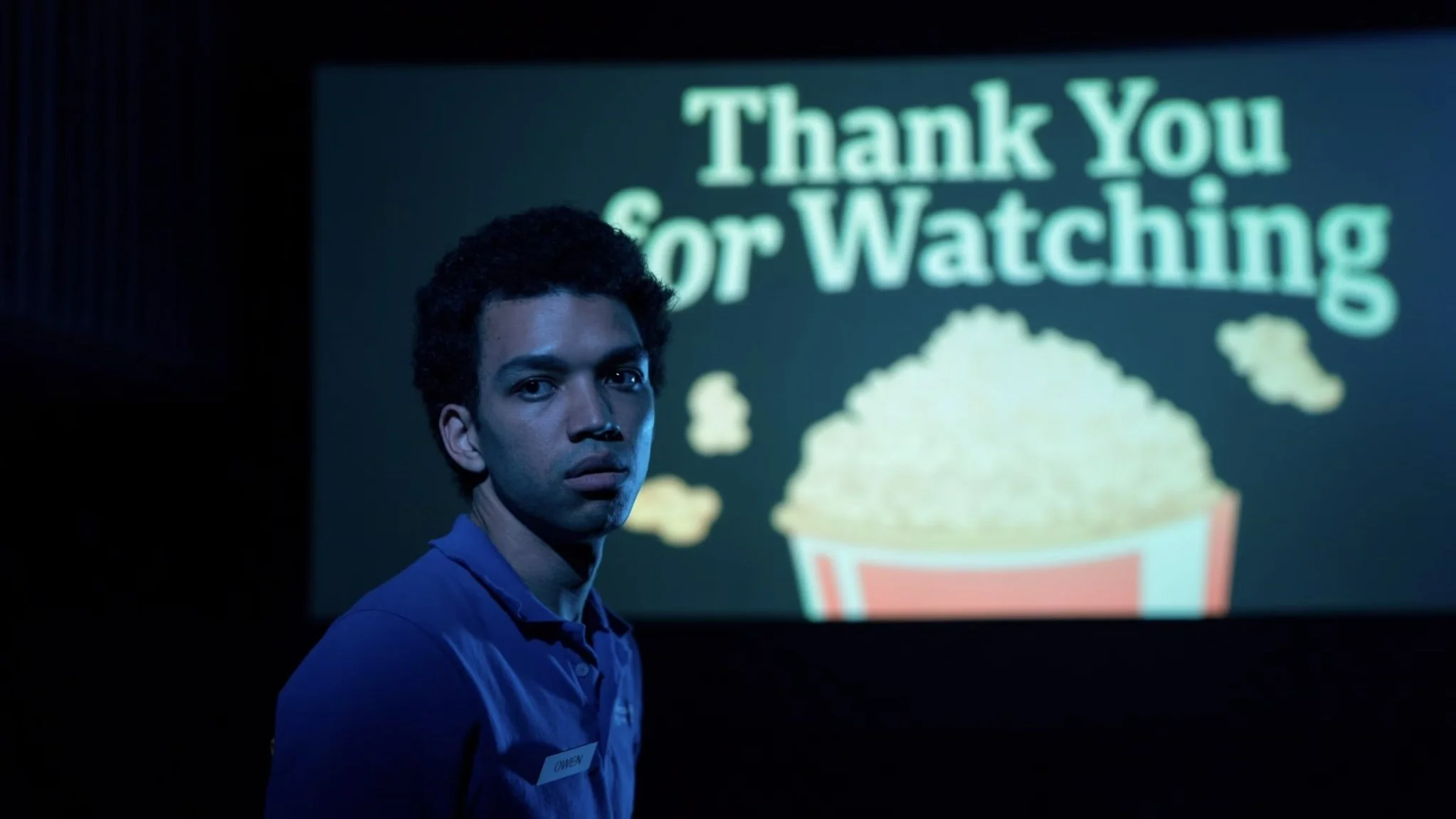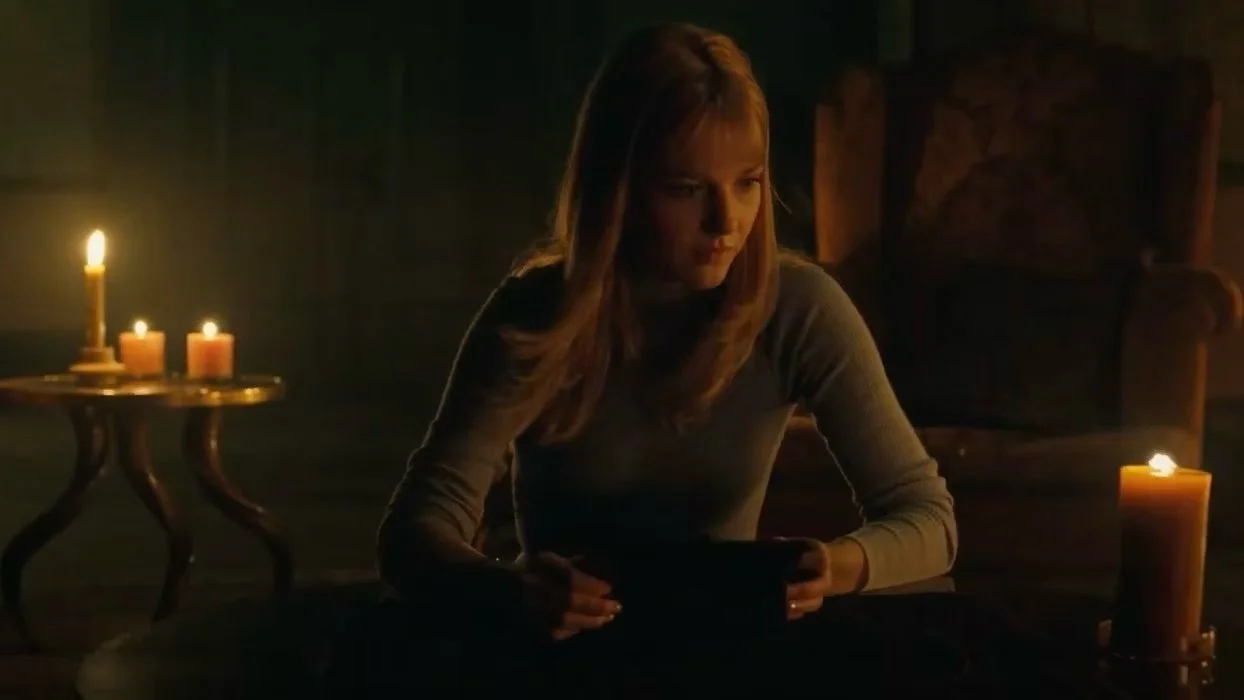Film Review — "Mother, May I?"
Horror has always been—and will always be—about trauma; it’s merely a matter of how. So, let’s tick that box straight away. Yes, director Laurence Vannicelli’s Mother, May I? does indeed deal with trauma. And yes, grief plays a role, too. But the film does not follow the repressed-memory-monsters-and-inner-demons-made-manifest trend we’ve grown accustomed to as of late. (“You see, the malevolent spirit is really his unresolved mommy issues.”) Vannicelli chooses to do something much more interesting and actor-centric instead.
We’re living in an era wherein the language of therapy is constantly being hijacked and bastardized, especially online. These days, “gaslit” just means someone lied to you, “triggered” means something annoyed you, and having “OCD” means you’re very particular about unimportant things. Thus, it makes perfect sense why a poorly conducted therapy technique, administered (repeatedly) by a character who is not a certified mental health professional, would be the major dramatic catalyst that drives the narrative.
Holland Roden plays Anya, a poet and daughter to a renowned psychiatrist. Despite Anya’s own mommy issues, which definitely come into play, Anya’s mom is not the titular mother here, at least not the primary one. That would be the recently deceased Tracy, mother to Anya’s fiancé Emmett, played by horror hottie Kyle Gallner, who must now confront his childhood trauma as he empties out the house Tracy bequeathed him. To allay Emmett’s diminishing mental state, which grows thornier by the minute, Anya insists they practice a cognitive-behaviroal exercise she gleaned from her mother’s work that involves each person temporarily adopting the persona of another, to address interpersonal conflict head-on via a dialogue.
As Mother, May I? plays out, it becomes an acting showcase for Kyle Gallner and Holland Roden. Gallner imbues Emmett with an eruptive mix of anger, resentment, bitterness, and contempt, but it’s Roden who ends up with the showier, more perceptibly dynamic part. Somewhere amid the all the role-play (and all the shrooms), the spirit of Emmett’s mother appears to take hold of Anya’s body. Anya begins to speak like her, write like her, dress like her, gesticulate like her, and so on. Anya even inherits some new skills during her time “as” Tracy, like cooking and swimming. It’s not always clear whether the literal ghost of Emmett’s mother has truly possessed Anya, or if Anya is just really committing to the bit.
That’s the beauty of Holland Roden’s performance. Her “Tracy” radiates with the poise and transatlantic-adjacent accent of an upper-crust purveyor of culture who harbors strong opinions on things like posture and etiquette, while smoking enough to make the chimney jealous. Everything she does is with a flouish. When Anya is not in Tracy’s grip, she carries herself like the modern young woman without airs that she is. The difference is stark.
So, while Holland Roden’s performance may be more eye-catching, Gallner’s is deep-rooted. Emmett has been haunted by the figurative ghost of his mother pretty much all his life; it just so happens that now she’s actually dead. And the way he responds to Anya exuding his dead mom’s energy is fascinating. Emmett’s frustrations morph into a kind of intrigue at the idea of Anya being quasi-possessed by Tracy’s personality, at the idea of his mother in the shape of his fiancée. Thankfully, Vannicelli keeps the scenario from getting as literally incestuous as you might expect—sidestepping the sophomoric pitfall of being twisted for the sake of being twisted—and sagely prevents the story from becoming gauche. Plus, it’s a more interesting choice anyway, actor-wise. It forces Gallner to truly and tactfully wrestle with Emmett’s complex emotions instead of simply, uhh, getting physical with his scene partner.
Mother, May I? dwells in the psychodrama division of horror. You won’t get scared watching it, but that doesn’t mean it isn’t horror, despite what the blowhards may say. Those windbags would probably also take issue with the ending, even though it makes sense dramatically and fits with the therapy-related themes of unpacking, reflecting, accepting, etc. In other words, I felt satisfied. Laurence Vannicelli expertly weaves everything together. He and DP Craig Harmer ground Gallner and Roden’s sublime performances in an unsettling, sometimes eerie atmosphere that suits the action and enhances the dialogue. The vibe they achieve laces everything with echoes of anguish, abuse, and abandonment. It feels like living in a memory, or a headspace, at times. And for many people, there is no place scarier.


